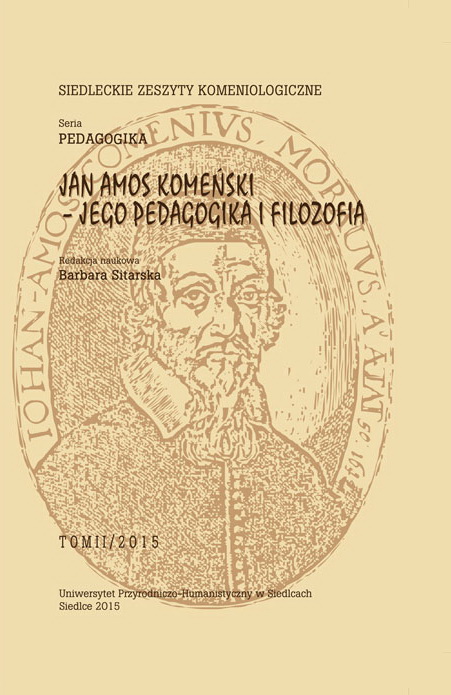KOMEŃSKIEGO KONCEPCJA SZKOŁY
Abstrakt
John Amos Comenius has been known to the world mostly through developing his modern principles of education. However, analyzing his works le-ads one to conclude, that this great pedagogue went as far as to conceptualize school not just as a place of education, but as a social institution. He was the first scholar – a humanist – who, in both his academic writing and work experience, developed the idea of adapting school to students’ needs, rather than the other way around. In so doing, Comenius distanced himself from the medieval school model, prevalent at his time, also known as ‘authoritarian indoctrination’ and proposed his own approach, best described as a ‘responsive socio-cultural induction’. Its key elements, and their departure from the dominant features in school education until then, are reflected in these three juxtapositions: mindless verbalism is replaced with experiential life learning, disempowering passivity gives way to student’s active-ness in multiple areas, and instead of a coercive school, this model promotes a school which is friendly and attractive to students.




